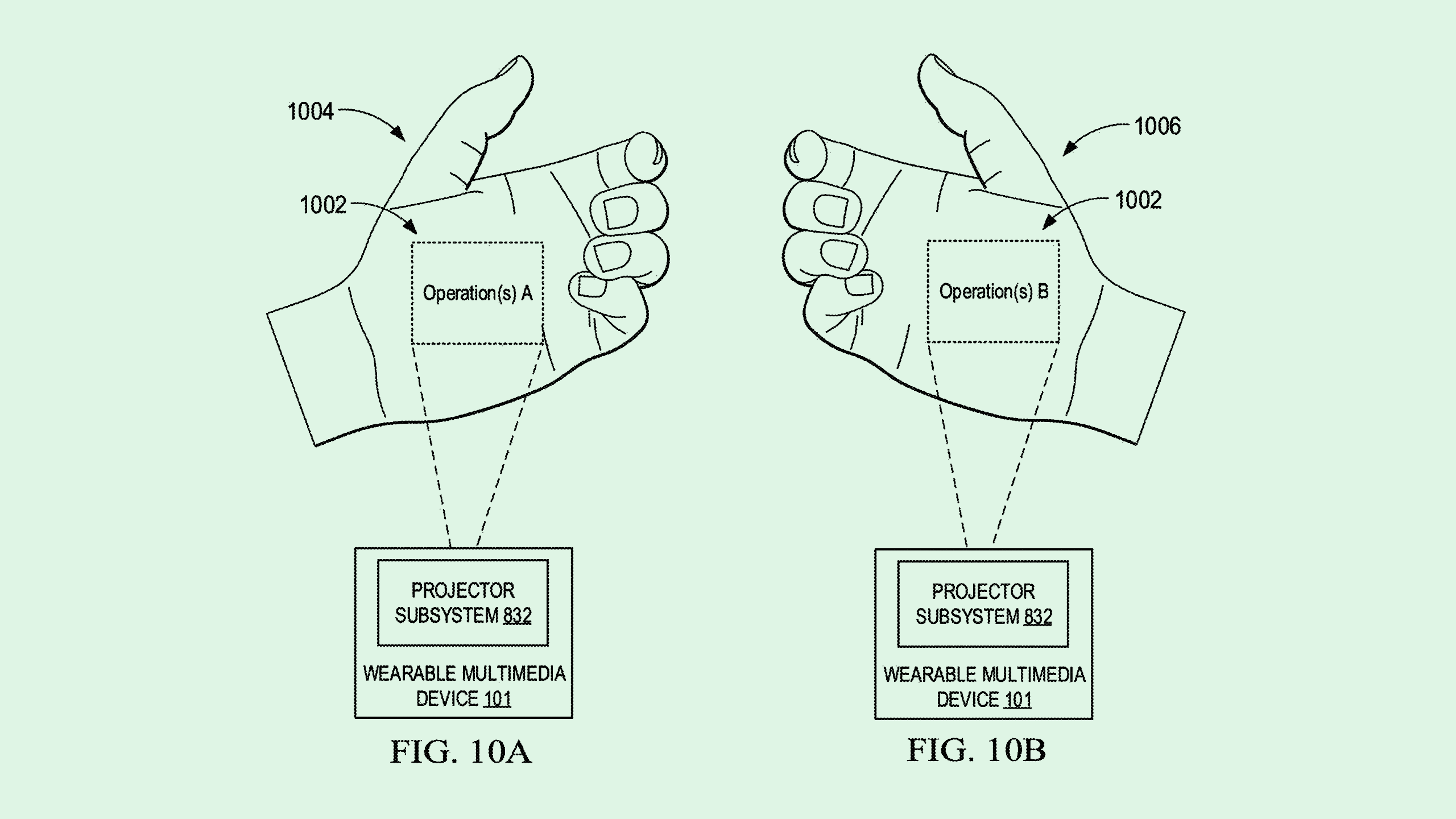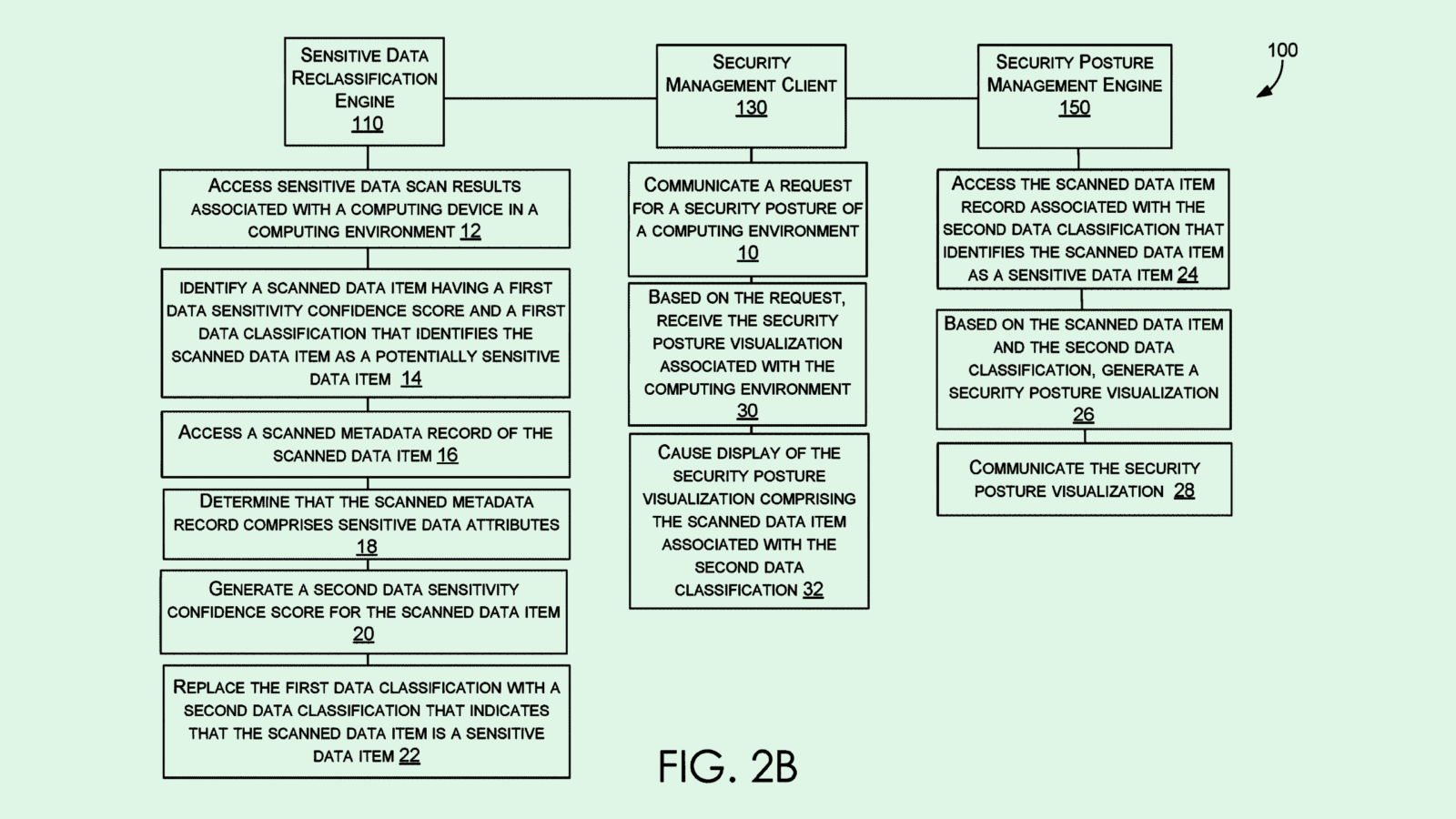Humane’s Latest Patent Makes the AI Pin Ambidextrous
Despite Humane’s lofty dreams to disrupt the smartphone status quo, critics have not been thrilled with the startup’s debut device.

Sign up to uncover the latest in emerging technology.
Humane may want to occupy both of your hands with its futuristic AI pin.
The company filed a patent application for “hand-specific” laser projections of its virtual interface. As the title of this filing implies, this tech aims to change the user interface based on the hand that the user holds up to the pins projector.
“In the case of the user’s palm, there is very little surface area in which to project a detailed (virtual interface),” Humane said in the filing. “This limited space can limit the number and types of user interactions with the VI, and thus potentially limit the number and types of applications that rely on the VI for input and output.”
Humane’s system would allow users to assign certain operations or applications to each hand. The camera on the device then uses depth detection sensors to determine which hand is in front of it.
Humane noted a few different operations that users could assign to each hand, such as a note-taking app, a calendar, a messaging app, or navigation. For example, if you are texting someone with your left hand, and want to check your calendar without exiting the messaging app, you can assign your calendar to your right hand for easier access.
This would allow a user to interact with these devices in a “more organized, consistent, predictable, and/or intuitive manner,” Humane said, as well as prevent erroneous responses from the device.
Humane first unveiled its debut device, called the AI pin, in November, promising to change the future of how we communicate with its entirely screenless experience. The company’s ambitious idea attracted hundreds of millions in funding, with backing from tech heavyweights like Microsoft, Tiger Global, Salesforce’s Marc Benioff, and OpenAI’s Sam Altman.
The company has been toiling away at this device since 2018, spending “thousands of hours reimagining and redesigning new types of compute interactions,” CEO and founder Imran Chaudhri said at a TED talk last year. “Why fumble for your phone when you can just hold an object and ask questions about it?” Chaudhri said.
While this sounds great in theory, as the device made its way into the hands of critics some cracks have come to light. With issues like lagging responses, misunderstanding inputs, unreliable battery, and a projector that doesn’t work well in the sunlight, many reviews are finding that the device doesn’t live up to Humane’s promises – especially not at a price tag of $699 with a $24 monthly subscription.
One review in particular, titled ‘The Worst Product I’ve Ever Reviewed… For Now’ by YouTuber Marques Brownlee, stirred up a good deal of social media turbulence, with many concerned that his review had the potential to bury the company. Brownlee, who has 18 million subscribers, noted in the review that the device is a “victim of its future ambition.”
If Humane does want to disrupt the smartphone status quo, the company has a lot of tweaking to do. And while this patent may add a little more usability, it simply brings another palm into the equation when many are hooked on screens.











